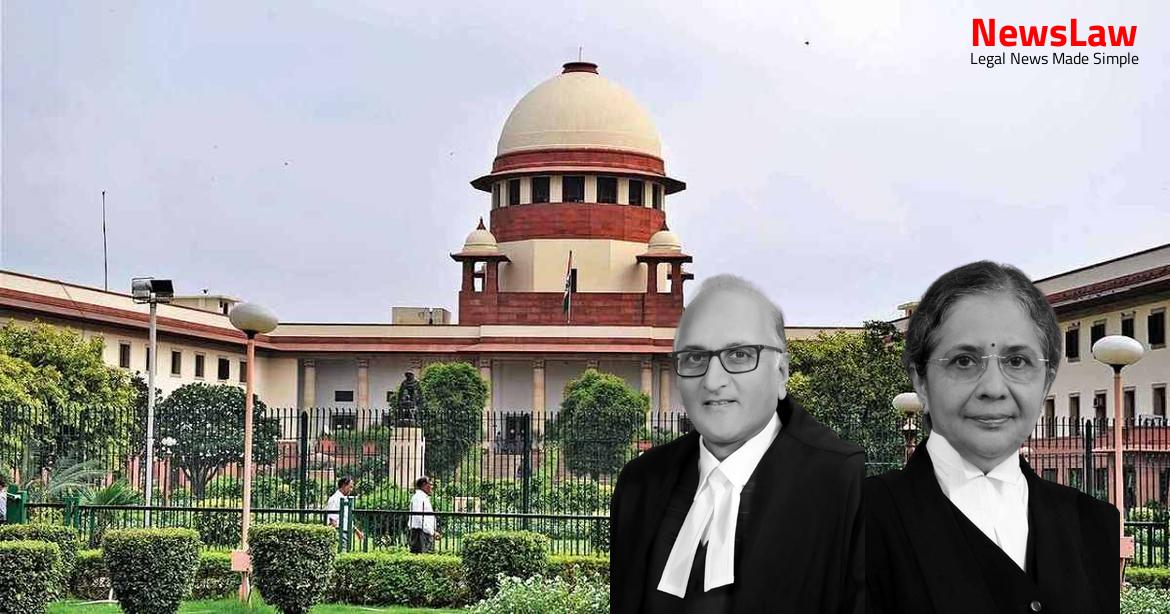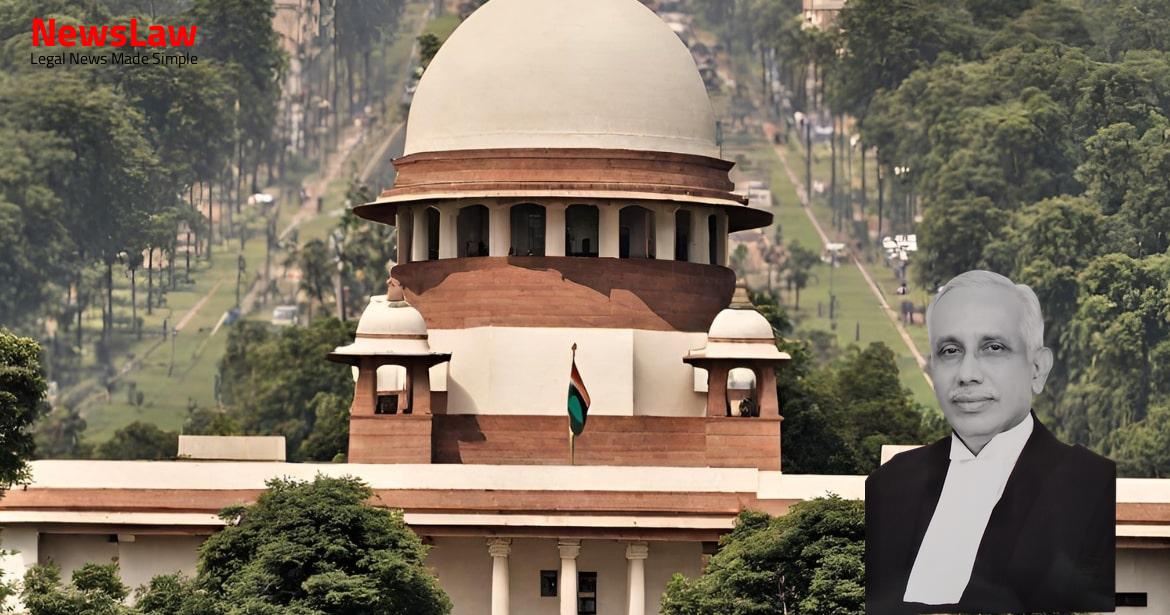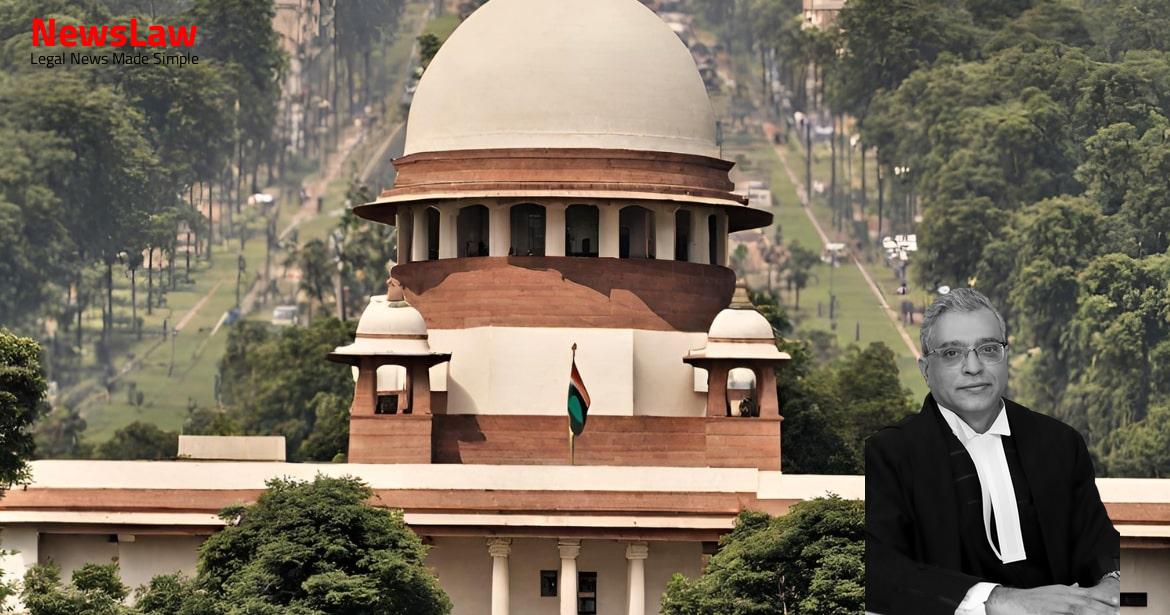Delve into the nuanced legal analysis surrounding the principle of retrospectivity in contractual obligations. Explore how the court’s interpretation of existing laws impacts past transactions and contractual liabilities, shedding light on the intricate intersection between law and contractual agreements.
Facts
- The licensee was the successful bidder for arrack shops in Kerala for the year 1993-94, offering ₹60 lakhs.
- A permit for import of 13,00,920 litres of rectified spirit was awarded.
- The state alleged that the licensee defaulted in payment and issued a show cause notice on 23-07-1993.
- The license was eventually cancelled on 19-08-1993 for failure to replenish security amount.
- Departmental management fee and duty on rectified spirit were collected for the period 13-09-1993 to 31-03-1994.
- The state contends that the licensee would have obtained ₹ 1,09,87,989 if continued.
- Court directs government to issue fresh demands based on actual loss only.
- Division Bench holds licensee liable for actual loss suffered by government.
- Argument made that since contracts were entered before Rule 13 amendment, licensee is only liable for actual loss in rental and excise duty realization.
- State argues that the impugned order was not justified as there was no challenge to Rule 13.
Also Read: Electoral Malpractices in Mayor Election
Arguments
- The Division Bench was deemed to have erred by relying on a previous judgement that licenses prior to 23-12-1993 were not affected by the amendment.
- The state’s decision not to provide credit was based on policy and interpretation of the statute.
- Due to security not being replenished in August, no credit was to be given to the licensee as per the old rule.
- Resale licensees could receive credit for management fee if they completed security after a resale.
- An amendment to Rule 13 from 23-12-1993 stated that liability adjustments were not possible, though management fees could be forfeited if security was incomplete.
- The original security was used to pay amounts due after the auction, indicating the licensee had not replenished it.
- Contrasted with the previous Rule 13, which allowed credit of management fees against the overall liability of the previous licensee.
- State took over immovable property belonging to the respondent and auctioned it to realize arrears which had been quashed
- Amendments inapplicable to past events like termination of the respondent’s license in 1993
- Previous ruling in Lucka v State of Kerala & Ors considered amended Rule 13 inapplicable to pre-existing contracts
- Respondent’s application for relief under amnesty schemes in 2008 and 2011 was rejected despite High Court judgment
- Respondent permitted to deposit 50% of the admitted amount under interim orders in 2011 scheme
- Licensee successful bidder in State auction, deposited security amount for timely payments of kist dues
- State attempted to auction shops seven times without success due to alleged non-payment by the licensee
- License cancellation occurred before rule amendments in 1993, state managed shops after cancellation
- Department recovered management fees from overall liability, totaling over ₹77,65,189 with interest
- State bid ₹1 for property appropriation, but court directed to maintain status quo when respondent applied for relief
Also Read: Balancing Power and Transparency: Electoral Bonds Struck Down, Disclosure Mandated
Analysis
- The state rejected the request to adjust the department management fee against arrears.
- The Departmental Management fees collected should not be recovered again as department management fees.
- Contracts executed after the amendment of rules may be bound by it if the rules are valid.
- The impugned judgment relied on the applicability of the amended Rule 13 to pre-existing contracts.
- The Division Bench in Lucka correctly reasoned that the amended Rule 13 was inapplicable to contracts previously awarded or entered into.
- The amounts calculated as departmental management fees for a specific period had to be adjusted.
- The court’s decision emphasized the principle that retrospectivity cannot be presumed without clear intention in the new rule or amendment.
- Contracts that were executed before the rule amendment were not to be treated as transactions for which amounts were non-adjustable.
- An amnesty scheme was introduced by the State in 2008, and the respondent was entitled to claim relief under it.
- The court clarified that the amounts deposited under the amnesty scheme were to be adjusted accordingly.
- The principle against retrospectivity in legislation is based on fairness and the idea that current law should govern current activities.
- Retrospective application of laws can disrupt individuals’ reliance on existing laws and plans.
- Every human being is entitled to arrange their affairs based on existing laws and should not have their plans retrospectively upset.
- The principle of lex prospicit non respicit (law looks forward not backward) is foundational to maintaining the integrity of legal arrangements.
- Retrospective legislation is contrary to the general principle that laws should not change the character of past transactions conducted in good faith under existing laws.
- The respondent approached the Court complaining about the State seeking to auction his properties.
- A status quo order was issued, preventing both parties from taking fresh steps.
- The respondent is given two months to deposit the balance amount to resolve the issue.
Also Read: Recall of Resolution Plan Approval: Legal Analysis
Decision
- The State shall refrain from initiating any proceedings for recovery of arrears for the period the contract was to be in operation (1993-94).
- Upon payment of 50% of the amount within two months, the respondent’s liabilities towards the arrears of dues for the liquor vend in issue cancelled by the State’s order dated 30-09-1993 shall stand discharged.
- The state is directed to release the respondent’s attached property upon receiving the balance 50% of the amount within two months or latest within four weeks of receipt of the amount.
- The respondent is not liable to pay any interest on the principal amount of ₹40,51,288.
- The State must ensure that the respondent’s property is released from attachment and possession handed back within two months for closure and discharge of the liability under the cancelled contract.
- The appeal is dismissed but subject to the directions mentioned.
Case Title: ASSISTANT EXCISE COMMISSIONER, KOTTAYAM Vs. ESTHAPPAN CHERIAN (2021 INSC 445)
Case Number: C.A. No.-005815-005815 / 2009



